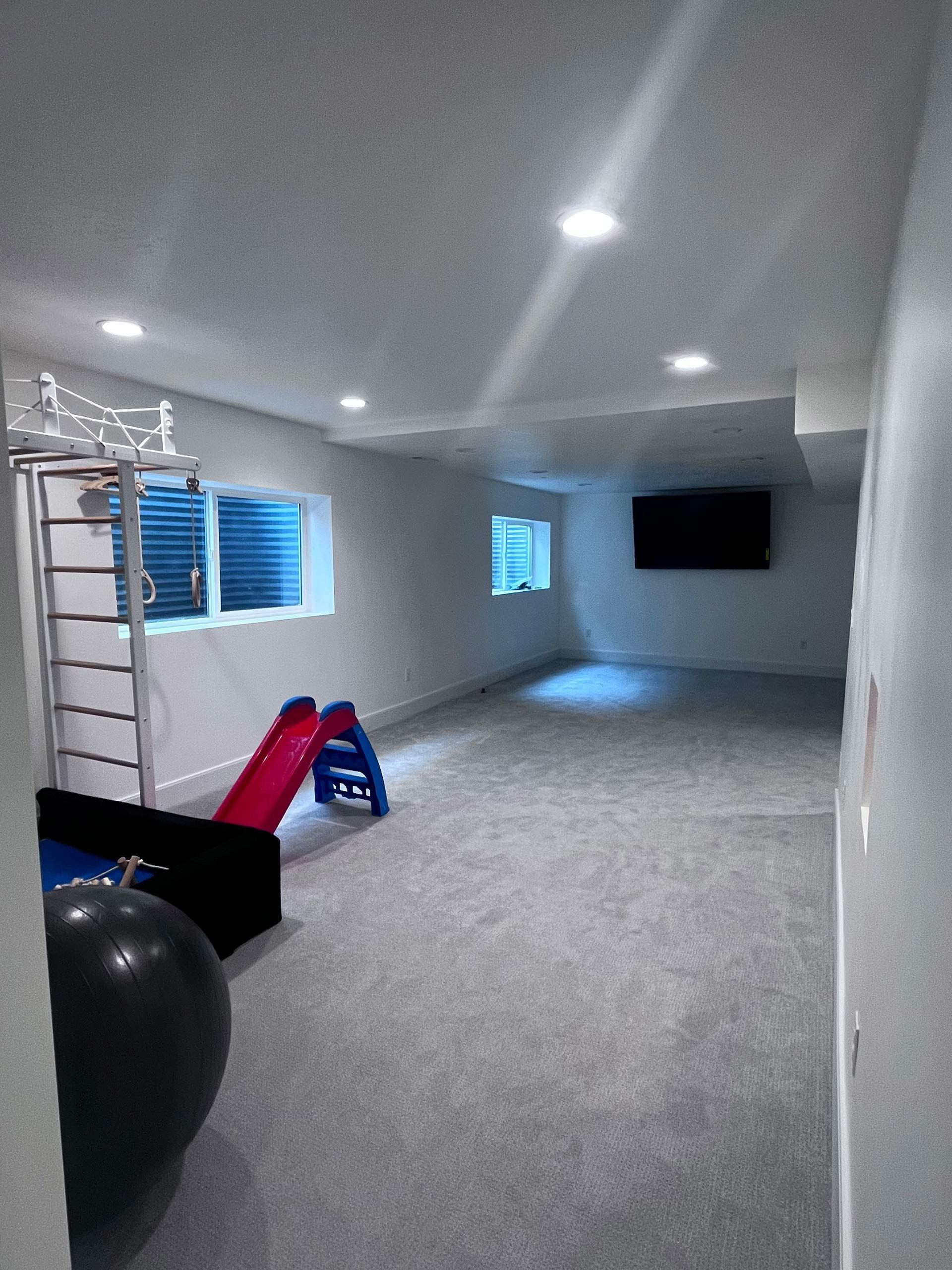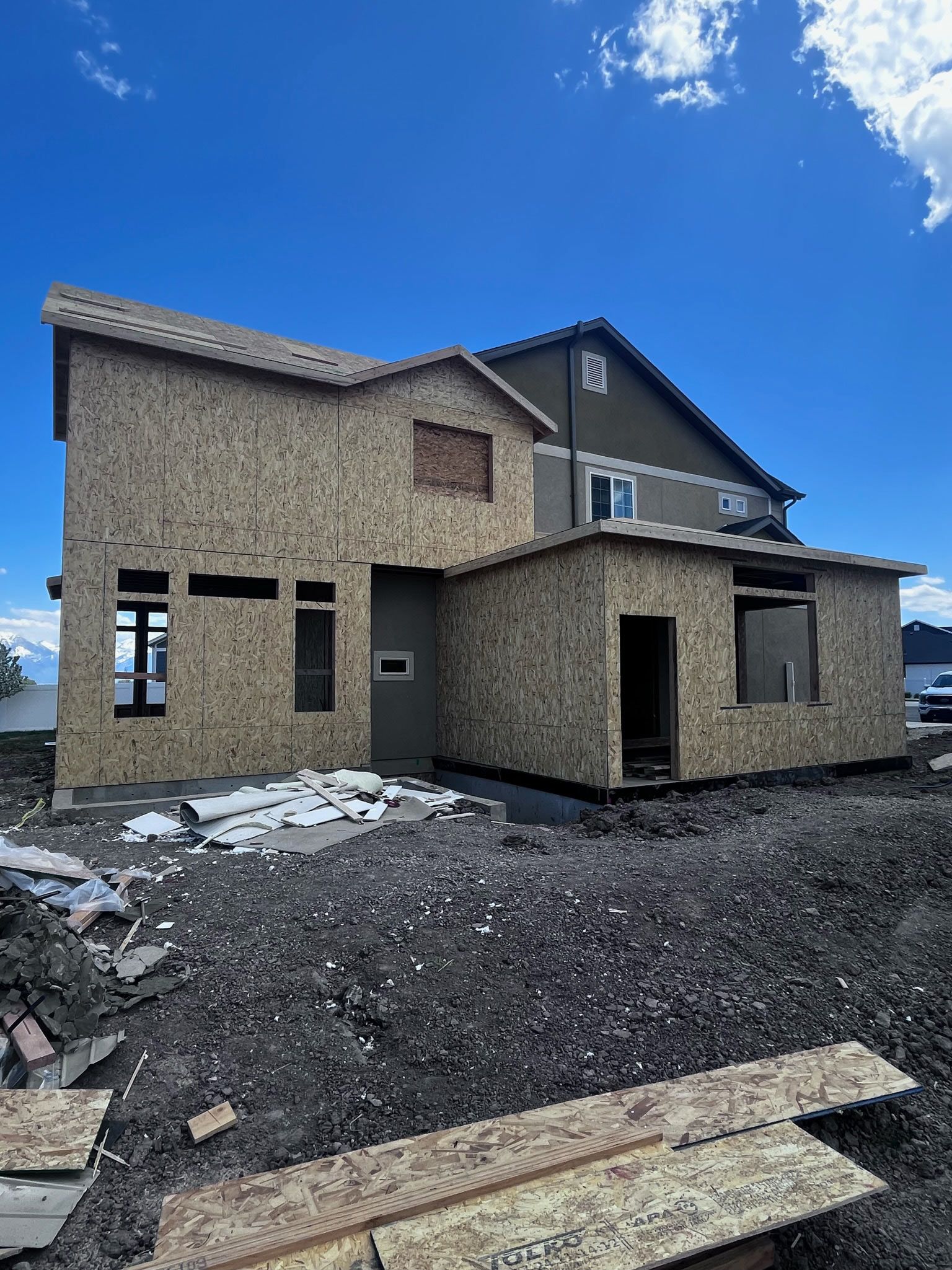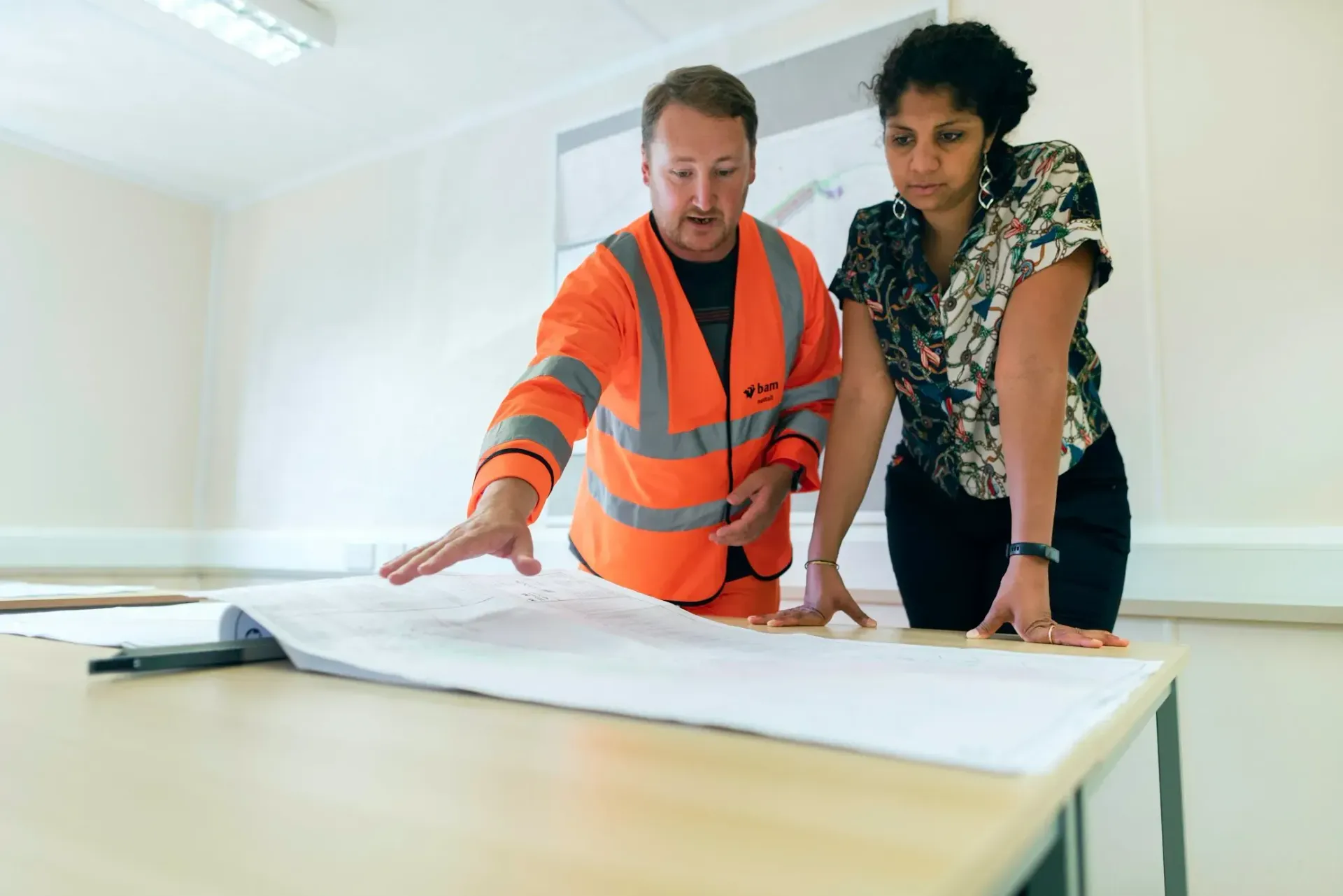How Much Value Does Finishing a Basement Add to Your Home?

How Much Value Does Finishing a Basement Add to Your Home?
Finishing a basement can add significant value to your home, but how much exactly? Many homeowners ask whether the investment is worth it and what kind of value they can expect from turning an unfinished basement into usable space.
The outcome depends on several factors, including the quality of the finishes, the square footage added, and the local real estate market.
In this blog, we’ll cover how much value finishing a basement can add to your home and what influences that value. If you're thinking about selling or just want to increase your home's worth, it's important to understand the potential return on investment (ROI) for a finished basement.
The Impact of Finishing a Basement on Home Value
Finishing a basement can be a smart move to increase your home's value. On average, homeowners can expect a return on investment of around 70-75% of the costs involved in finishing the space. This means that if you spend $50,000 on a basement remodel, you could see your home's value increase by $35,000 to $37,500. However, these numbers can vary based on location, the quality of the finishes, and how much usable space you’re adding.
In competitive housing markets, having a finished basement can set your home apart from others, attracting buyers and potentially leading to higher offers. Adding functional space, like an extra bedroom, bathroom, or family room, can make your home more appealing to families looking for more room without the higher price tag of a larger house.
How much value finishing a basement adds depends on knowing the local market and what buyers are looking for in your area.
Factors That Influence the Added Value of a Finished Basement
Several factors influence how much value a finished basement can add to your home. Understanding these can help you make decisions that maximize the return on your investment.
- Square Footage Added: The more livable space you add, the more value you create. Converting an unfinished basement into usable square footage boosts your home’s appeal, especially in areas where space is limited.
- Quality of Finishes: High-quality finishes, like durable flooring, proper insulation, and upgraded lighting, make a big difference. A well-finished basement that feels like an extension of the main living areas will add more value than a basic renovation.
- Local Market Conditions: Real estate markets vary by region, so the value you gain from finishing a basement depends on the demand in your area. In some markets, added living space is a major selling point, while in others, it might not have as much impact.
- Functional Utility: Adding practical spaces, such as a bedroom, home office, or extra bathroom, makes the basement more attractive to potential buyers. The more versatile the space, the more value it adds.
By focusing on these factors, you can ensure that your basement renovation is a smart investment.
Average Cost of Finishing a Basement
The cost of finishing a basement can vary widely depending on the scope of the project, materials used, and location. On average, homeowners spend between $30 to $70 per square foot to finish a basement, but this number can go higher depending on custom features and upgrades. A basic finish might cost around $20,000 to $50,000, while a more extensive renovation, complete with high-end finishes, can easily exceed $100,000.
Costs typically include:
- Framing and Drywall: Constructing walls, ceilings, and finishing them with drywall.
- Flooring: Options range from basic carpet to more durable options like vinyl, laminate, or tile.
- Electrical and Plumbing: Adding outlets, lighting, and plumbing for a bathroom or kitchenette.
- HVAC: Extending heating and cooling systems into the basement.
- Permits and Inspections: Depending on your area, you may need permits, and your work will likely need to pass inspections.
For a detailed breakdown of basement finishing costs in Utah, check out this Cost to Finish a Basement in Utah – Foundation Finishes.
Understanding these costs upfront helps you plan your budget and set realistic expectations for the return on your investment.
ROI (Return on Investment) for a Finished Basement
When it comes to home improvement projects, finishing a basement offers one of the better returns on investment (ROI). On average, homeowners can expect to recoup about 70-75% of their costs. For example, if you spend $40,000 finishing your basement, you might see your home’s value increase by $28,000 to $30,000. However, the exact ROI can vary depending on several factors, including the quality of the renovation and your local housing market.
Finishing a basement often provides more value than other home improvements because it adds usable square footage. This can be especially appealing to buyers looking for extra space without moving into a larger or more expensive home.
Basements that include additional bedrooms, bathrooms, or entertainment areas tend to have the highest ROI because they offer functional benefits that attract a broader range of buyers.
Ultimately, the ROI of a finished basement depends on how well the renovation meets the needs of the local market and adds value beyond just extra square footage.
Case Studies of Homes with Finished Basements
Real-life examples can help illustrate the value that a finished basement adds to a home. Here are a few case studies:
Home in a Competitive Suburban Market
A homeowner in a suburban area where square footage is in high demand decided to finish their basement, adding a large family room, a bedroom, and a bathroom. This renovation cost around $45,000. When they sold their home, the finished basement was a key selling point, and they received offers $40,000 higher than similar homes in the neighborhood with unfinished basements. This resulted in nearly a 90% return on their investment.
City Home with Limited Space
In an urban market where space is limited, a homeowner transformed their unfinished basement into a home office and guest suite. This $30,000 renovation increased the home’s appeal, especially for buyers needing extra living space without leaving the city. The finished basement helped the home sell 15% faster than other listings in the area and added about $25,000 to the final sale price, a strong 83% ROI.
Vacation Home Turned Rental Property
A homeowner finished their basement to create an additional living unit in a vacation home, which they then used as a short-term rental. The $60,000 renovation allowed them to increase their rental income significantly, and when they decided to sell, the property’s income potential made it highly attractive to buyers. The finished basement contributed to an increase of over $50,000 in the home’s value, giving them a roughly 85% return.
These case studies show that, when done right, finishing a basement can offer substantial financial benefits, both for resale and for enhancing the functionality of the home.
Tips for Maximizing the Value of Your Finished Basement
If you’re planning to finish your basement, here are some tips to help you get the most value out of your investment:
- Focus on High-Quality Finishes: Choose materials that are durable and appealing. Well-crafted flooring, quality lighting, and proper insulation make a big difference in how the space feels and how much value it adds.
- Create Functional Spaces: Design the basement to serve practical needs. Adding an extra bedroom, bathroom, or a home office can make the space more versatile and attractive to potential buyers. Think about what features would appeal to your local market.
- Add Ample Lighting:
Basements can feel dark and cramped, so invest in good lighting. Consider adding recessed lighting, large windows, or even light wells to brighten the space and make it feel more inviting.
- Ensure Proper Ventilation and Climate Control: A finished basement should be as comfortable as the rest of the home. Make sure your HVAC system is extended to the basement, and consider adding a dehumidifier to keep moisture in check.
- Think About Future-Proofing: Plan for potential future needs. Adding wiring for a home theater or an extra kitchenette now can increase the value of your basement down the line without the need for future renovations.
By focusing on these areas, you can make sure that your basement renovation not only meets your needs but also adds maximum value to your home.
Common Pitfalls to Avoid When Finishing a Basement
Finishing a basement can be a great investment, but there are common mistakes that can reduce its value or cause problems down the road. Here’s what to watch out for:
- Skipping Permits: Make sure to get the necessary permits for your basement renovation. Skipping this step can lead to issues during inspections or when selling your home, and may reduce the value of the finished space.
- Poor Waterproofing: Basements are prone to moisture issues, so it’s crucial to address waterproofing before finishing. Ignoring this step can lead to mold, mildew, and water damage, which can hurt your home’s value.
- Cheap Finishes: Cutting corners on materials or labor might save you money upfront, but it can hurt the long-term value. Quality finishes are key to ensuring that your basement looks great and adds value over time.
- Inadequate Insulation: Proper insulation is essential for comfort and energy efficiency. A poorly insulated basement can feel cold and uninviting, which can turn off potential buyers.
- Ignoring Layout: A poorly planned layout can make your finished basement feel awkward or unusable. Take the time to design a space that flows well and meets practical needs, like easy access to utilities and sufficient storage.
Avoiding these pitfalls will help ensure your basement renovation is a success and adds lasting value to your home.
Does Finishing a Basement Always Increase Home Value?
While finishing a basement often increases a home’s value, it’s not always a guaranteed boost. There are situations where it might not add as much value as expected, or even none at all. Here’s what to consider:
- Over-improving: If you spend too much on high-end finishes that don't match the rest of the house or the neighborhood, you may not see a strong return on investment. The basement should complement your home’s overall style and price range.
- Market Demand: In some areas, buyers may not prioritize finished basements. For example, in warmer climates or regions where basements aren't common, finishing the space might not provide as much value as in colder regions where extra indoor space is more desirable.
- Poor Design Choices: A finished basement with a bad layout or low-quality finishes can actually hurt your home's appeal. Buyers may see it as a project they need to redo, rather than a finished space they can move right into.
- Structural Issues: If the basement has underlying problems, like cracks in the foundation or water issues, finishing it won’t necessarily solve these problems and could even lead to more significant issues later on.
So, while finishing a basement usually adds value, the extent depends on the quality of the work, the local market, and how well the renovation meets buyers' expectations.
Conclusion
Finishing a basement is a great way to add value to your home, increase usable space, and enhance its appeal to potential buyers. Whether you're adding a family room, an extra bedroom, or even a rental unit, the benefits can be significant.
However, to maximize the return on your investment, it's essential to focus on quality finishes, functional design, and avoiding common pitfalls like poor waterproofing or skipping necessary permits. While the exact value added will depend on several factors, a well-finished basement is generally a solid investment in your home’s future.
If you're ready to start your basement finishing project or explore other remodeling options, Foundation Finishes in Centerville, UT, is here to help. Specializing in basement finishing, home remodels, home additions, bathroom remodeling, and kitchen remodeling, Foundation Finishes has the expertise to transform your home into the space you've always dreamed of.
Contact them today to get started on your next project.
Frequently Asked Questions
How long does it take to finish a basement?
The timeline can vary, but most basement finishing projects take between 6 to 12 weeks, depending on the scope of work and any potential delays, such as permitting or unforeseen structural issues.
What’s the difference between finishing and remodeling a basement?
Finishing a basement typically involves adding walls, flooring, and utilities to create usable space from an unfinished area. Remodeling goes further, often including major design changes, such as adding rooms or altering the layout.
How much does it cost to finish a basement per square foot?
Costs can range from $30 to $70 per square foot, depending on materials, labor, and the complexity of the project.
Is a permit required to finish a basement?
Yes, most areas require permits for finishing a basement, especially if you’re adding plumbing, electrical, or making structural changes. Be sure to check your local regulations before starting the project.
Can a finished basement be used as a rental space?
Depending on local zoning laws and the setup of your basement, it could be possible to use the space as a rental. However, additional permits and inspections might be required to ensure the space meets legal requirements for living quarters.


